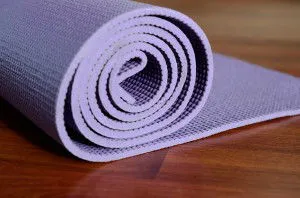Triclosan is an antibacterial compound that has been linked to numerous human health problems. Exposure comes mainly by absorbing it through the skin, or the lining of the mouth, which has resulted in contact dermatitis, or skin irritation, and an increase in allergic reactions, especially in children.
Triclosan has also been linked to hormonal disruption. Leading health expert Dr. Joseph Mercola notes that it’s been found to significantly inhibit the function of cardiac and skeletal muscle, at doses equivalent to normal, everyday use.
The chemical also has a negative effect on the environment as it’s been shown to accumulate in lake sediment due to its frequent use. It’s also been detected in human breast milk samples and in urine at high concentrations that correlate with the use pattern of triclosan.
In addition, scientists fear that the use of products that contain triclosan are contributing to the growing epidemic of antibiotic resistant bacteria around the world – yet, there is no evidence that antibacterial soaps are any more effective at killing everyday germs than soap and water.
The compound was recently banned in the state of Minnesota, and has also been under scrutiny by the FDA for altering hormone regulation and fostering the development of antibiotic-resistant bacteria. This toxin can be found in three-quarters of liquid antibacterial soaps and 30 percent of soap bars – but it’s also lurking in a number of other surprising places.
Some manufacturers even hide triclosan in other antimicrobial compounds such as Microban, Cloxifenolum, Lexol-300, Additive B, Iragasan (also listed as DP 300 or PG 60) and Ster-Zac.

- Office and school products that contain Microban protection such as pencils, binders, scissors and even calculators
- Cosmetics, including lip gloss, foundation, face powder, mascara as well as many moisturizing creams and lotions
- Ear plugs
- Kitchen utensils and products including cutting boards, ice cream scoopers and slicers
- Yoga mats
- Acne medications
- Wallpaper
- Sports helmets
- Foot warmers
If you discover that you’re using a product that contains triclosan, you may want to express your opinion to the manufacturer, and ask for safer ingredients to be used.
-The Alternative Daily
Sources:
http://articles.mercola.com/sites/articles/archive/2012/08/29/triclosan-in-personal-care-products.aspx
http://www.beyondpesticides.org/antibacterial/products.php
http://www.care2.com/greenliving/28-surprising-places-triclosan-hides.html
https://www.thealternativedaily.com/minnesota-bans-antibacterial-soap-ingredient
